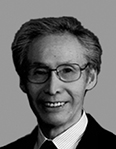Greeting from Yamada Science Foundation
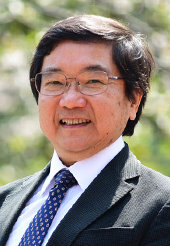 The Yamada Science Foundation was established in 1977 with a generous donation from Mr. Kiro Yamada, then President of Rohto Pharmaceutical, with the aim of supporting unique basic research in all fields of natural sciences. Since its creation, the Foundation has a long history of promoting basic research by providing research grants, holding scientific meetings and supporting international research collaborations.
The Yamada Science Foundation was established in 1977 with a generous donation from Mr. Kiro Yamada, then President of Rohto Pharmaceutical, with the aim of supporting unique basic research in all fields of natural sciences. Since its creation, the Foundation has a long history of promoting basic research by providing research grants, holding scientific meetings and supporting international research collaborations.
What is “basic research”?
It has been argued that scientific achievements are hypotheses that explain observed phenomena, and must be falsifiable. There is no hypothesis or theory (scientific achievement) that can definitively explain everything that happens in the real world. In this sense, the degree to which the results obtained through scientific research can explain universal phenomena depends on the scope of each hypothesis or theory. Some results are valid only under very limited circumstances, while other results, obtained over time, may explain more universal phenomena. There are many possible answers to the question of what basic research is, but I believe that basic science is the effort made by scientists to understand the world by obtaining stronger and more universal theories. Basic research is an endeavor for those with an innate curiosity and desire to understand natural phenomena, and an essentially boundless activity carried out over many lifetimes.
Unfortunately, competitive research funds provided by the government are now, more than ever before, primarily focused on applied research to solve individual problems. In these conditions, we here at the Foundation feel an even greater responsibility to provide grants for basic research based on free ideas. We will continue to support scientists of all ages and backgrounds who are devoted to basic research. We look forward to working together with you in the future.
Fuyuki Ishikawa
President, Yamada Science Foundation
Past Presidents of the Board

1977-1980

1981-1990

1991-1992

1993-1994
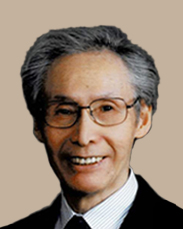
1995-2008

2009-2012
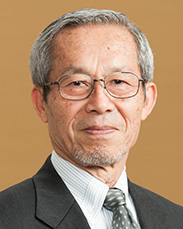
2012-2017
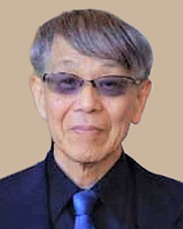
2017-2019

2019-
Overview
| Name | Yamada Science Foundation |
|---|---|
| Date of Established | February 25, 1977 |
| Fundamental Property | ¥ 2,842,217,439 (March 31, 2023) |
| Objectives | To promote basic natural science researches by providing complementary support to that provided by the government. To place emphasis on original and pure science programs by individual scientists. |
| Address | 1-8-1, Tatsumi-nishi, Ikuno-ku, OSAKA 544-8666, Japan |
| Authority | Cabinet Office (the Prime Minister) |
Board Members and Councilors
| Position of YSF | Name | Title |
|---|---|---|
| President | Fuyuki ISHIKAWA | Vice-President, Kyoto University / Director, Kyoto University Research Administration Center (KURA) |
| Managing Director | Masanori OKUDA | Managing Director, Yamada Science Foundation (YSF) |
| Directors | Atsushi IRIKI | Senior Scientist, RIKEN Institute |
| Yoshio KITAOKA | Professor Emeritus, Osaka University | |
| Hiroshi TSUNEMI | Professor Emeritus, Osaka University | |
| Ikuko HARA-NISHIMURA | Trustee, Nara National Institute of Higher Education and Research / Executive Director, Nara Institute of Science and Technology / Professor Emeritus, Kyoto University / Professor Emeritus, Konan University | |
| Akira HARADA | Professor, Osaka University | |
| Keiji MARUOKA | Professor, Kyoto University | |
| Auditors | Hirofumi OHNISHI | Certified Public Accountant |
| Hisao MASAI | Director General, Tokyo Metropolitan Institute of Medical Science |
Councilors
| Name | Title |
|---|---|
| Masamitsu IINO | Special Advisor to Director, International Research Center for Neurointelligence, The University of Tokyo / Professor Emeritus , The University of Tokyo |
| Kayo INABA | Auditor, Japan Agency for Medical Research and Development (AMED) |
| Leo ESAKI | President, Science and Technology Promotion Foundation of Ibaraki |
| Shoichi KUSUMOTO | Professor Emeritus, Osaka University |
| Katsuhiko SATO | Special Advisor, Research Center for Science Systems, Japan Society for the Promotion of Science (JSPS) |
| Yasuji SAWADA | Professor Emeritus, Tohoku University |
| Kunihiko SUZUKI | Professor Emeritus, University of North Carolina / a Member of the Japan Academy |
| Kohei TAMAO | President, Toyota Physical and Chemical Research Institute (Toyota Riken) |
| Keiko NISHIKAWA | Emeritus Professor, Chiba University |
| Nobutaka HIROKAWA | Professor Emeritus, The University of Tokyo / Professor, Juntendo University |
| Yoshiyasu MATSUMOTO | Professor Emeritus, Kyoto University |
| Kunio YAMADA | Chairman and Chief Executive Officer, ROHTO Pharmaceutical Co.,Ltd. |
| Yasusada YAMADA | Professor Emeritus, Osaka University |
History
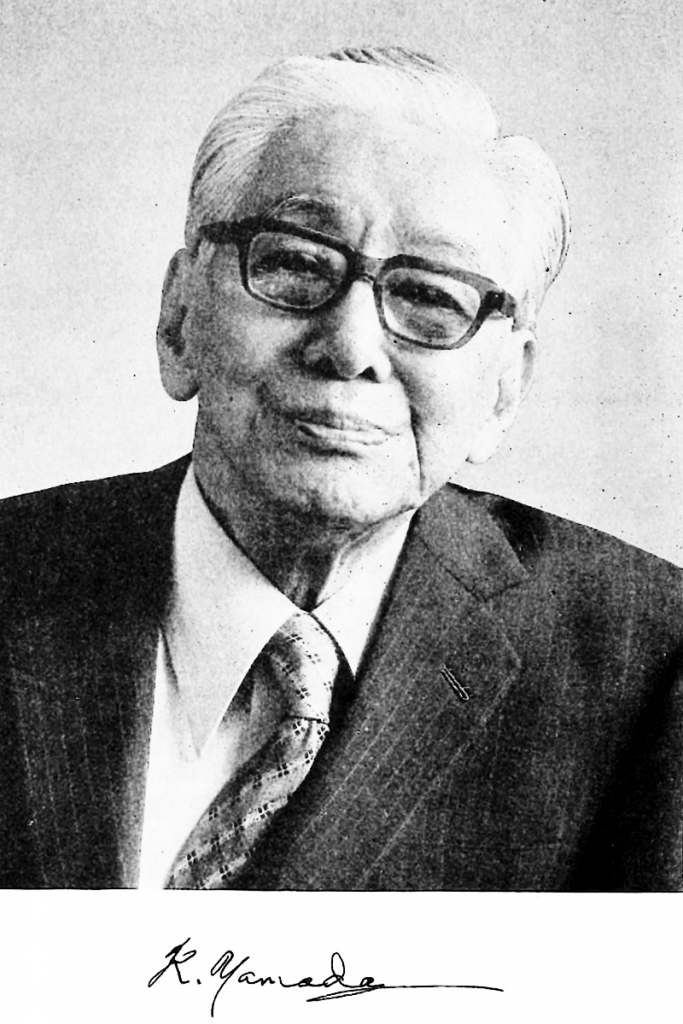
"Tenshi Hanko: Try it in a narrow range (point), and when it is found to be good, do it widely"
“No matter how much we think it's a good idea, we won't know until we actually try it. There may be a lack of understanding and forethought. It is dangerous to decide "this is good" automatically. That's why you have to experiment partially within a narrow range. If you find it to be "good", then you will be well prepared and can spread nationwide. That was my way.”
Yamada Science Foundation was established by the late Kiro Yamada, the first president of Rohto Pharmaceutical Co., Ltd., with his personal fortune of 3 billion yen.
Kiro significantly developed Shintendo Yamada Anmin Pharmacy, which he inherited from his father, and founded Rohto Pharmaceutical Co., Ltd. with great success as a business owner. Through his life experience, he realized that the success of his business was due to the support of many people, so he wanted to give back to society in an effective way with his own private funds. He went over a number of ideas and came to the conclusion that it is important for the development of Japanese society to emphasize logic and originality, and that it is necessary to promote these things, especially in the basic fields of natural science. He decided to establish a foundation for the purpose of "promoting basic research in the natural sciences", and Yamada Science Foundation was born in 1977.
Since its establishment, for the purpose of "promoting basic research in the natural sciences", our Foundation has provided assistance in all areas of natural science, from astronomy to biology, not just those related to the pharmaceutical business.
When Kiro established the Foundation, he considered what sort of role a private foundation should play. This is summed up in the phrase, "Tenshi Hanko", the meaning of which is "Try it in a narrow range (point), and when it is found to be good, do it widely".
This term was coined by Kiro, but the idea is that private foundations should play the role of point testers (Tenshi) by supporting research that is small in scale but boldly tackles unknown areas, and if it proves to be promising, ask the government for large-scale support (Hanko). In contrast to public assistance, which tends to be orthodox, the Foundation's policy of reaching out to advanced and interdisciplinary research that has the seeds of creativity but is often overlooked has remained unchanged since its establishment.
Another important phrase for the Foundation is "Η ΑΛΗΘΕΙΑ ΕΛΕΥΘΕΡΩΣΕΙ ΥΜΑΣ," which is inscribed on the beam in the Central Catalog Room of the National Diet Library in Japan. These words are found in the second half of verse 32 of chapter 8 of the Gospel of John in the New Testament.
We believe that "the truth will set us free," as "free thinking will lead us to the truth".
Prospectus
Established: February 25, 1977
Our country has made great progress in science and technology since the end of World War Ⅱ, and its present status appears as advanced as that of the United States and major European countries. However, the true state of affairs is that our progress is based not necessarily on indigenous scientific inventions or discoveries, but primarily on the adoption of science and technology from the United States and Europe. Therefore, we are not always able to declare that our scientific level has achieved a high plateau in the true sense of the term.
This is fundamentally true because of the passive posture we have been forced to assume due to our relatively short exposure to Western science; a posture which exhibits a scientific “shallowness” as one of our national characteristics.
However, in recent years, we have been faced with fundamental and global problems concerning energy resources and environmental pollution which involve every advanced nation, and which may well dictate our survival. Under these circumstances, it is inevitable that our country be challenged with a new situation where we simply cannot follow the past approach which is dependent on the innovations of others. It is our belief that the time has come for us to break from this passive posture and turn to an active posture whereby we can launch original basic research well ahead of other countries and create new technologies therefrom.
At present, though many may be clamoring about the necessity of change, the heart of the matter is how to accomplish this difficult “turn”. It seems to us that only a few fully recognize the fundamental problems which underline the implementation of this turn or transition.
1) To further creative basic research, it is, above all, imperative to possess a pioneering spirit leading one into unexplored fields. For this purpose, it is necessary to have one’s work stimulated by actively associating with other disciplines rather than in the isolation of a closed academic discipline. This will lead to opening up new interdisciplinary fields. A dynamic approach may well develop into a redefinition of our traditional perception of science. In other words, our established system of values has tended to place greater emphasis on maintaining the status quo and to regard a Ph.D. in, say, physics, chemistry, or biology, as one’s acquisition of the innermost secrets of that particular discipline, based on the mistaken assumption that physics or chemistry is a perfected science, requiring no further exploration. However, the truth is that any invention or discovery, however great, is not an end in itself, but rather the beginning of a new field of study; the greater the discovery or invention, the more promising the development will be. And the invention or discovery represents a milestone on a highway named scientific progress which is the foundation for future achievements. Many Japanese, we are afraid, do not fully comprehend such potentialities for development inherent in science. For this reason, Japanese researchers, even in basic areas, place emphasis on the status quo; hence we witness many cases where they are too timid to either pioneer aggressively into unknown fields - research in the truest meaning of the term - or to go beyond the steps of foreign researchers.
2) The next problem is that even when there happens to be an important achievement based on original research in Japan, it tends to be short-lived and disappears because we lack the soil where it can be properly nurtured. It should be recognized that innovative scientific work is very likely to open up a new field, stimulating further research as well as leading toward novel applications. However, for example, when the tunnel diode was discovered in Japan, the Japanese academic circles failed to show any dynamic response, developing it neither into new superconducting diodes nor into a variety of applications based on the proper evaluation of its practical significance. In short, these facts may well mean that Japan’s science and technology does not yet possess a viable capability to grow “organically”.
3) In addition, we realize some inflexibilities in the advancement of our science and technology. Undoubtedly this rigidity is a remnant of the teachings of our feudal system in which Japanese men should not serve a second master, and Japanese women should not take a second husband, after losing the first. One of the most important facts to recognize in the development of science and technology is that there is nothing absolute, and alternatives may exist. At the beginning of this century when it was realized that some phenomena were barely interpreted on the basis of the well-established classical dynamics, efforts to look for alternatives led us to quantum mechanics and the theory of relativity. Also, research, exploring alternatives to vacuum tubes, brought us the transistor, one of the greatest postwar inventions.
When we examine these problems, it is difficult to be optimistic about the future of Japanese science and technology, although we are endowed with a number of promising researchers. It is obvious, however, that the future of Japan, deficient in natural resources including energy, is very much dependent on the advancement of science and technology.
Therefore, it is our firm belief that we should prepare ourselves for the future by gradually rectifying defects and solidifying the foundation of our science and technology with long-range perspective.
For these purposes, we must strengthen the basic research thus far neglected, improve “interface” among the various areas of basic research, and make further efforts toward creative research. To utilize the achievements of basic research to the fullest extent possible, we must establish effective interface between basic research and its application, thus opening up the ways and means of applying results of achievements to various fields with enthusiasm.
Nevertheless, for those of us who are engaged in basic research, particularly in the natural sciences, one of the greatest deterrents has been, and is, the lack of necessary equipment and funds. Particularly, recent scientific ventures have become so enormous and expensive that now, more than ever before, we need long-range perspective combined with sufficient financial support.
It is clear to us, in light of the current situation described above, that anyone who makes financial assistance available for basic research will be contributing to the future of our scientific and technological development, and hence to the prosperity of mankind.
It is our great pleasure to report that Mr. Kiro Yamada, President of The Rohto Pharmaceutical Company Limited, recently offered a large sum of money to support basic research in the natural sciences.
Mr. Yamada, after his graduation from Waseda University, succeeded his father in the pharmaceutical industry and has now worked there for more than fifty years, managing the Rohto Pharmaceutical Company Limited contributing greatly, through the manufacture of drugs, to the advancement of our national health. Concerned with the lack of innovative works in Japan's science and technology, Mr. Yamada has offered to contribute his private resources to help assist creative basic research on a broad level.
We hereby establish The Yamada Science Foundation with a strong desire to stimulate excellent research activity in our country, thus benefitting the improvement of science and, in turn, the welfare of mankind.
Founding Members,
Shiro AKABORI
Leo ESAKI
Takeo NAGAMIYA
Isamu NITTA
Masao YOSHIKI
Shuntaro OGAWA
Kiro YAMADA






